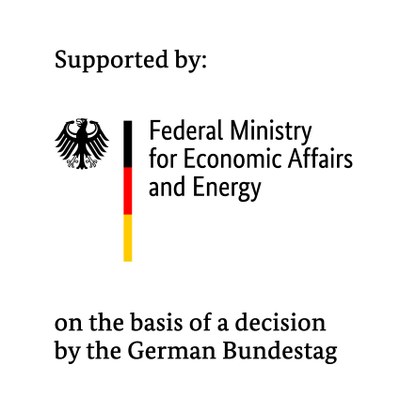Cross-network planning instrument open_eGo
The freely available planning tool open_eGo supports the economically optimised design of the grid infrastructure for future loads at all voltage levels.
Open planning tool that works across different sectors and grid levels to determine the optimum use and expansion of flexibility options in Germany

BMWE
The increased use of renewable energy sources and the progress made in sector integration are influencing what the energy system will look like in years to come. The groundwork must be laid to ensure its stability. In the eGoⁿ research project, an existing planning tool that works across different sectors and grid levels is being enhanced so that sector integration can be incorporated into the studies being done. The aim is to use this planning tool on an open platform to determine how best to expand grids and storage systems in Germany.
Forschungsprojekt eGoⁿ | |
|---|---|
Duration | December 2019 to November 2022 |
Funded by | Federal Ministry for Economic Affairs and Energy |
Project participants |
|
The increase in renewable energies and the progression of sector integration are posing new challenges for guaranteeing a stable energy supply. In order to be prepared for these developments, in the open_eGo (Open Electricity Grid Optimization) project, a planning tool that works across different grid levels was developed to help determine the optimal expansion of grids and storage systems in Germany. In a follow-up project, eGoⁿ, this planning tool is to be expanded so that it can incorporate sector integration in the best possible way.
The power grid model that it currently uses will be supplemented with requirements and flexibility options relating to gas, e-mobility and heating. This means, for example, that fluctuations in energy supply or consumption will be balanced out by a dynamic response to the changes. The impact of these flexibility options on the power grid is to be investigated and incorporated into the planning tool. This will allow cross-sectoral interdependencies to be factored in and studied in terms of the energy systems of the future. These immense volumes of data result in a hugely complex model, which requires an enormous amount of processing power. This gives rise to the central research element of the project: the conflicting objectives of processing effort on the one hand and modelling accuracy on the other.
The Institute of Networked Energy Systems is working on two of the project’s specific sub-goals. Firstly, its scientists are looking at the gas sector and its role in the power system. This includes data acquisition, setting up a gas data model and incorporating it into the planning tool, amongst other things. Secondly, they are working on methods for cutting complexity and are focusing on applying and further developing these methods. The project and the findings it generates will then be made available in open source and open data formats so that various stakeholders such as politicians, scientists, academics and grid operators will be able to make use of them in the future.
More Information on the eGoⁿ research project:
